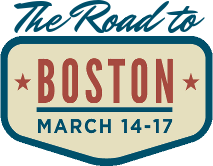Do your sources ask for email interviews or quote approval? Are press relations officers listening in on your interviews? The Right to Know Committee will host a roundtable discussion at Health Journalism 2013 on Thursday, March 14, to share stories and offer advice about these issues and other barriers to open and straightforward newsgathering.

A look at some of the issues, sessions and ideas to keep in mind for those planning to attend Health Journalism 2013, the annual conference of the Association of Health Care Journalists.
Peggy Peck, editor of MedPage Today, and Irene Wielawski, an independent journalist and founder of AHCJ, will join me in moderating the discussion. As members of the Right to Know Committee, we are advocates for public information and open access to government officials and medical experts.
Reporters at MedPage Today do not allow their sources to approve quotes. The website alerts readers when interviews are conducted in the presence of a publicist. Peck will talk about her decisions on these issues and advise other editors looking to implement similar policies in their newsrooms.
Quote approval can be a necessary way to guarantee accuracy, Wielawski says. She’ll discuss the quote and fact checking process in long-form journalism, where the interview can take place more than a year before the publication date. She says it’s important to determine if any situations have changed in the meantime, especially for patients and other sources who are not accustomed to being in the public eye.
I plan to bring up a topic that has been dealt with recently at my newspaper. More of our sources are requesting interviews via email, changing the dynamic of the traditional give-and-take of a phone or in-person conversation. What potential problems does this present, and should readers be informed of the interview format?
This session was inspired by a policy enacted in September banning quote approval by New York Times reporters because “the practice risks giving readers a mistaken impression that we are ceding too much control over a story to our sources,” according to Times’ editors. More recently, college newspapers at the University of South Florida, Stanford and Princeton have banned email interviews. But some journalism professors say the newsgathering process has to adapt to modern technology, and reporters should reach out to sources in their preferred format.
How do you and your editors deal with these issues? We look forward to learning from you.




